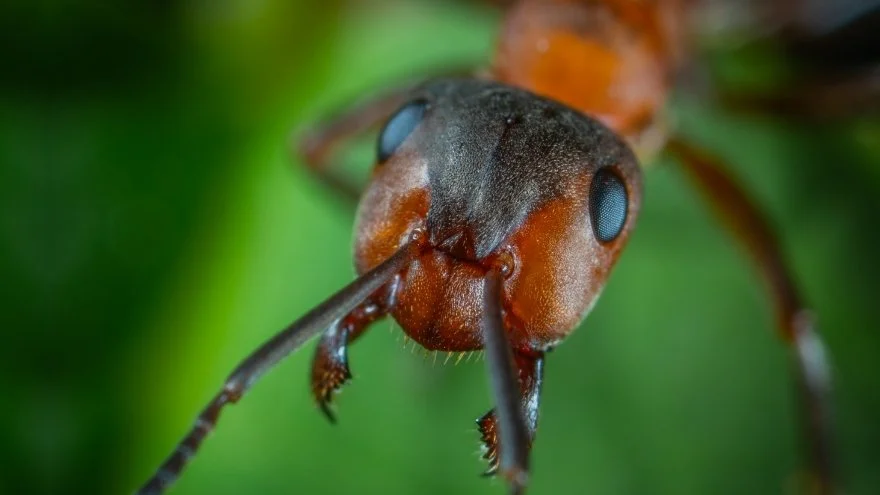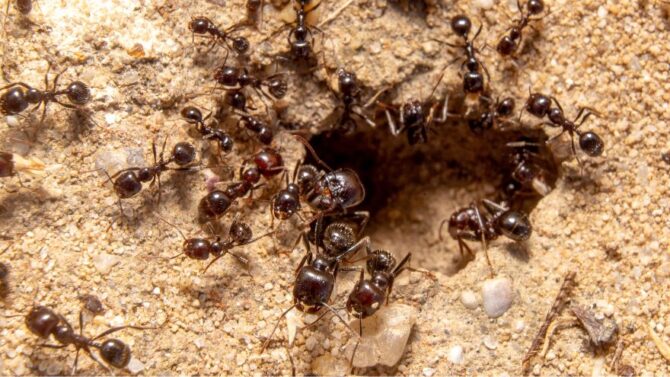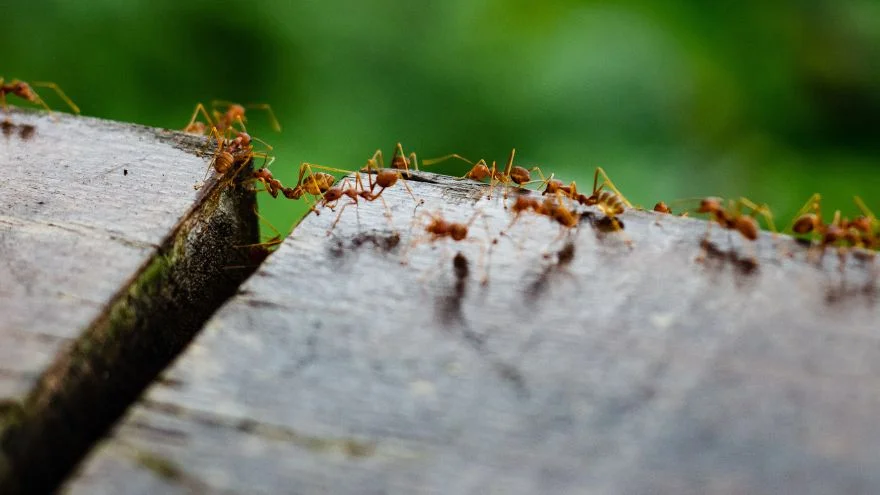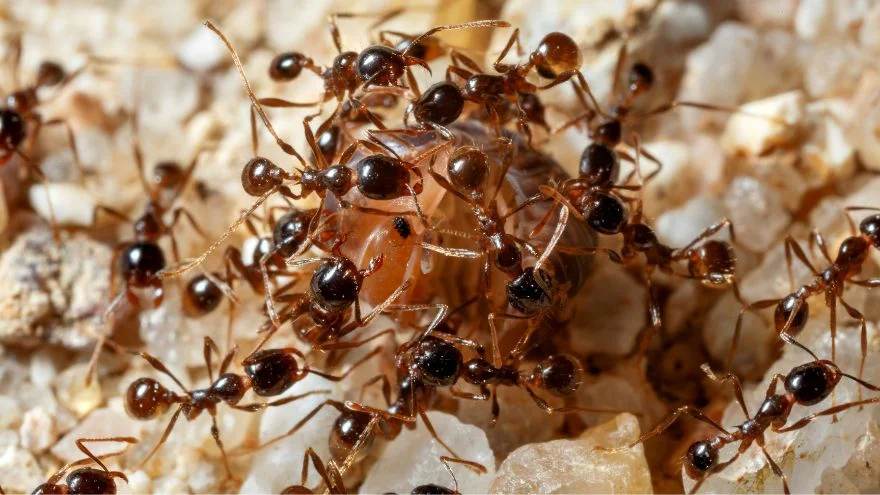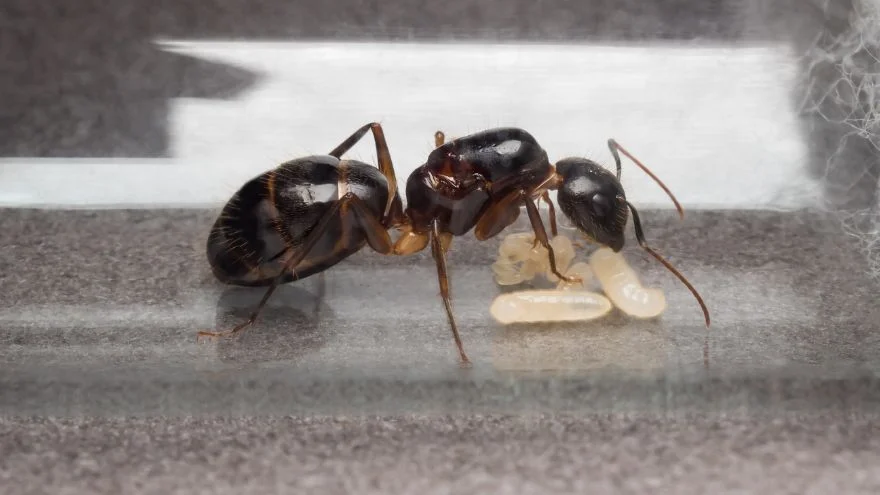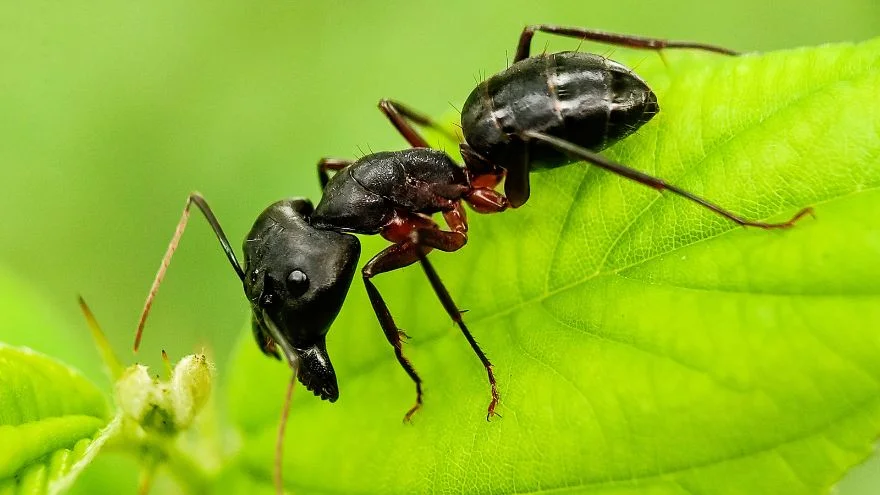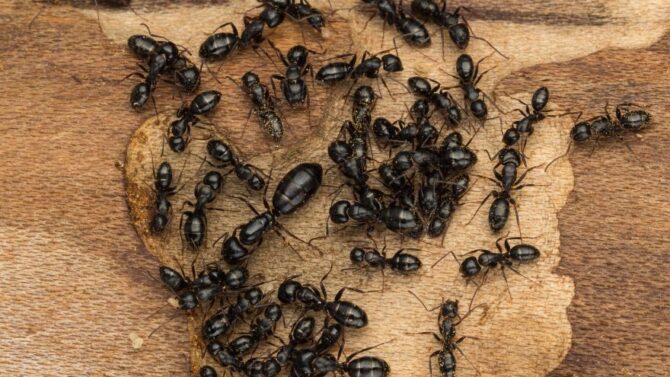Ants are one of those common insects we can easily find around our homes and gardens, with over 10,000 species worldwide; and of different sizes and shapes.
People often wonder how it would feel to be so small like an ant and still be able to see the world around us. Even more, do ants have eyes?
Despite being so small, ants can function well like every other animal in the world.
Ants, like most insects, do have eyes popularly referred to as compound eyes, which allow them to navigate their environment; however, they can’t see well with them.
These compound eyes, which consist of ocelli, antenna, and mandibles, can be found on the ant’s head.
This article will give you more insights into the ant vision and how well they can see the things around them.
Head Structure: Do Ants Have Eyes?
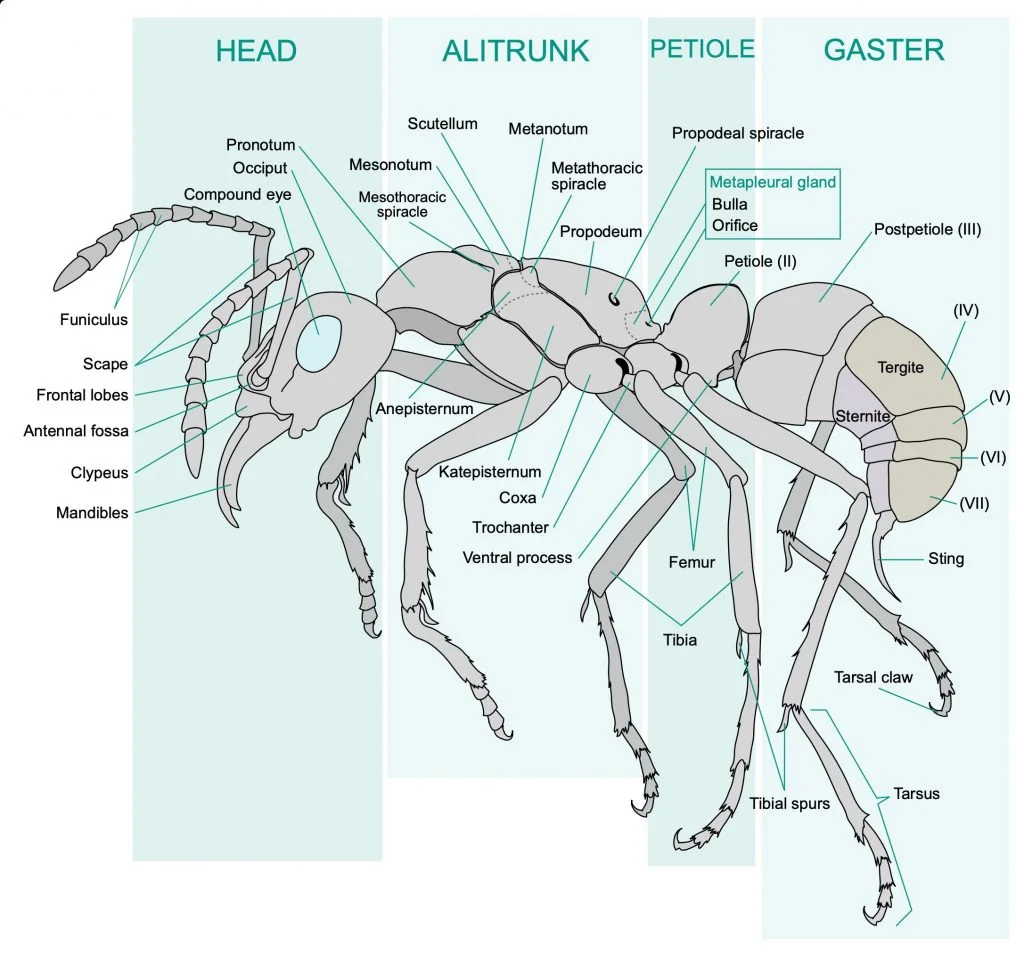
The obvious answer is Yes. Ants have a set of big compound eyes at the sides of their head and a triangle of three small or simple eyes on their forehead called the ocelli.
The compound eye, which they primarily use, comprises small units of lens called ommatidia that help them find their way, and their simple eye (ocelli) is known to serve as the compass that guilds them.
The size and shape of ants’ eyes differ with species, and they can see better depending on the number of ommatidia they have in their compound eye.
Also See: Do Ants Have Hearts & Organs? You’ll Be Surprised!
How Many Eyes Do Ants Have?
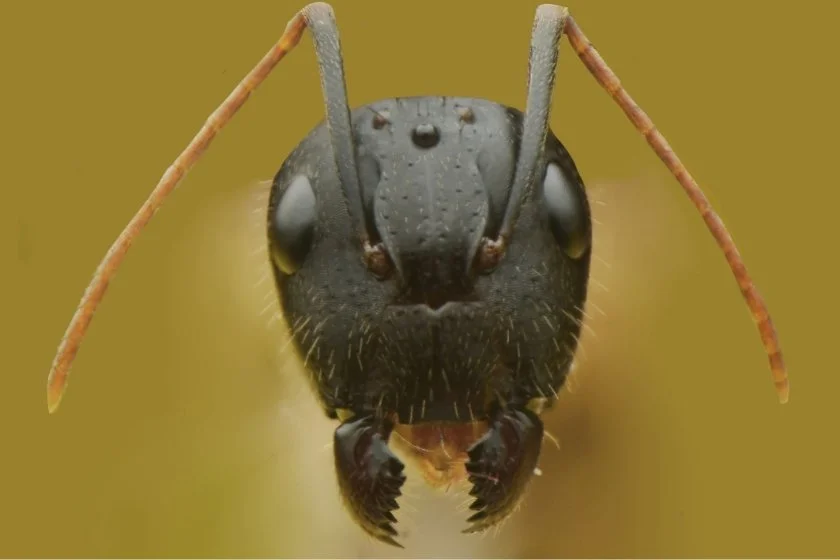
Typically, most ants have two large compound eyes, which comprise many small units of lens bulbs.
But when considering the three primitive eyes, also known as the ocelli, which are present in most species, ants generally have five eyes.
How Many Ommatidia Do Ants Have?
The number of ommatidia depends mainly on the size of the ant.
As a result, a single compound eye of bigger ants should have up to 650 small units of lens bulbs (ommatidia), and for small ants, the number of ommatidia is around 150 small units.
The number of ommatidia in an ant eye will determine the extent to which it can see clearly.
Scientists make use of light paint over the eyes of a dead ant, placing the eye on a surface and then magnifying that surface on a lens, which allows them to count the number of ommatidia an ant possesses, and as a result, can determine the distance an ant can see.
Can Ants See?
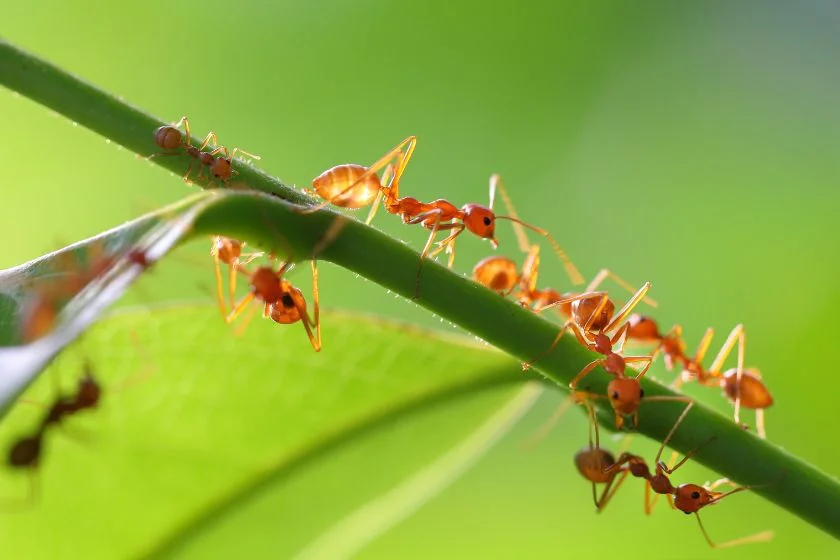
Yes, ants can see, but because of how small they are, they can only see things close to them clearly and the rest of the world as a big blur.
Ants don’t often rely on their sight to move about; they use their senses to navigate their day-to-day activities.
How Can Ants See?
Ants generally see using their ommatidia. The small units of lens bulbs, called the ommatidia, help them focus on a particular object, and the compound eye produces the image allowing the ants to see the object clearly.
Although they can not see very far, they rely on their chemical senses, called chemoreceptors, to move and locate where they are going.
How Do Ants See the World?
Ants can see the world, but they see it as a huge blur because of how small they are.
Their eyesight is very poor, and they can’t see anything more than 30 to 90 cm.
Ants don’t often rely on their sight all the time. They use their physical contact, called mechanoreceptors, and chemical senses, called chemoreceptors, to navigate themselves.
As they don’t see far and clearly, they sense movement quickly through vibrations and their ommatidia.
Also See: Do Ants Have Ears? Can Ants Hear Sounds?
Can Ants See Humans?
Yes, ants can see humans. Ants can see or sense humans, but they might not know what they are or see due to their poor sight.
Although, when close to humans, they see them clearly but not fully because humans are like giants compared to their very small selves.
Ants will see a human standing at a distance of 100 cm or above as a giant blur wall and will continue to head towards them.
But immediately sense the human movement with their compound eye; they will scatter to avoid them.
Do Ants Have Good Eyesight?
Ants generally have very poor eyesight and can only see things as a blur; the smaller the size, the lesser the ommatidia, and the poorer the sight.
Ants, unlike other insects, have very bad eyesight. Even the bigger ants with plenty of ommatidia still see the world as a big blur.
Some species of ants, like the soldier ants, are sometimes considered completely blind ants.
Nevertheless, bigger ants with a large number of ommatidia have better vision.
They can see barriers and avoid them better than the smaller ants with a smaller number of ommatidia and have to get closer to those barriers before noticing them.
Are Ants Blind?
Although ants see everything as a big blur, ants have eyes and can see, which means they are not blind.
Ants can only see things very close to them at a distance of about 1 to 20 cm, depending on the number of ommatidia in their compound eye.
Can Ants See Color?
Some ants can see colors depending on the species. For example, the American bull ants can sense colors like green and blue.
They may sense such colors because they do not have strong chemical senses that help them navigate.
Nevertheless, ants generally do not see colors. Due to their blurry sight, they can only see it as light and dark.
Are Ants Color-blind?
Ants are generally not color blind as they can sense blue and yellow lights but can’t differentiate them.
Unlike humans, ants have also been known to sense ultraviolet lights, which helps them locate food easily.
Can Ants See in the Dark?
Yes, ants can see in the dark, although we hardly see them at night, and this is a result of their big black compound eyes, which contain photo receptors allowing them to have excellent night vision.
Conclusion
We have been able to discuss extensively and understood that any have eyes with which they can see but, unfortunately, due to their small size, aren’t able to see well.
However, ants do not often rely on their eyesight to navigate their environments as they have a strong chemo-receptor that helps them.
Also See: Do Ants Have Brains? Here’s What Science Says
